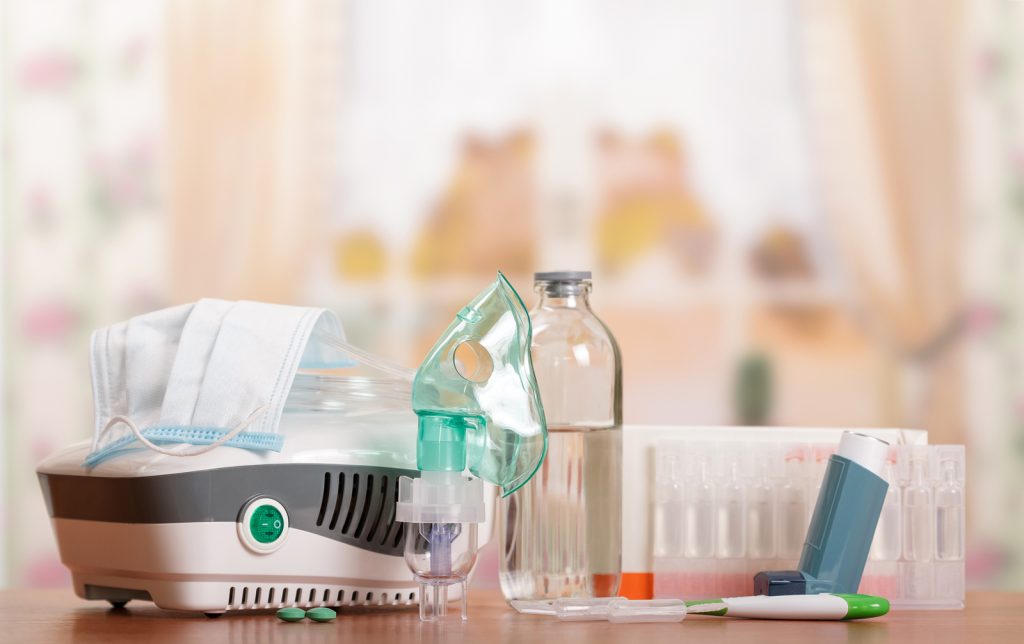According to the World Health Organization (W.H.O.), nearly 300 million people suffer from asthma worldwide. Approximately over twelve percent of the UK population are currently receiving treatment for asthma (British Lung Foundation). Of these 5.4 million, 1.1 million are children. Although thought to have plateaued since the late 1990s, the UK still has some of the highest rates in Europe as on average three people die as a result of asthma each day. | Forest Medical – Spirometer Calibration
In fact, asthma has increased dramatically in recent years and would be due in part to changes in our way of life. One theory suggests that we live in an environment that is too sterile, where too little contact with harmless bacteria increases the risk of allergies and asthma. On the other hand, studies have shown that asthma appears more often in cities. The increase in asthma may be caused by too much exposure to air pollution.
Additional examinations needed
It is because of these scenarios that precise diagnosis of the disease is crucial to initial identification and ongoing monitoring. To validate the diagnosis of asthma, a complementary pulmonary function test is required.
What is the purpose of pulmonary function tests?
Spirometer
A Spirometer measures changes in lung volume during inhalation and expiration. The data is then compared to those of a person of the same height, weight, and age. Forced expiratory volume in one second (FEV 1) is one of the measurements for determining the severity of asthma.
Peak Flow Meter
A peak flow meter is another Spirometry test used to measure the patient’s maximum expiratory power. The peak flow meter provides less information than Spirometers, but is easier to use and cheaper. An advanced flow meter also helps to evaluate the treatment.
Reversibility test
Your doctor will often perform a reversibility test; which examines whether the narrowing of the airways can be relieved by taking medication. The reversibility test measures lung function before and after taking a medication. If, after inhaling a bronchodilator, the person expires a much higher volume of air than before, it is likely that they have asthma. This test excludes Chronic Obstructive Pulmonary Disease where the narrowing of the bronchi is, in fact, irreversible.
Other tests
There are a number of more specialist tests to measure lung function, such as diffusion test, body-box or provocation test. The doctor will always determine why they will perform these compared to those outlined above.
Allergy tests to refine the diagnosis of asthma
Prick test
Skin prick tests identify allergens that cause allergic reactions. During a prick test, substances are injected into the skin of the patient’s back. If, after a quarter of an hour, the skin blushes and swells, there is a high likelihood that the individual has had an allergic reaction to the substance in question.
Blood test
If the doctor suspects that asthma is triggered by an allergy, they may request for a blood test to be carried out. In this case, they will look for the presence of specific antibodies that are mobilised to fight against allergenic carriers.
Knowledge of allergens
A blood test and a prick test are not always enough to determine a diagnosis; however, they are useful as soon as the diagnosis of asthma has been established. The knowledge of the triggering factors makes it possible to avoid the occurrence of an asthma attack, which is already a first step in the treatment.
Forest Medical Spirometer Calibration
Spirometry is a breathing or ‘lung function’ test. It’s one of the most common tests people with asthma or people who are being tested for asthma, are given. Your GP or asthma nurse will ask you to take a deep breath and then breathe out as fast as you can and for as long as you can through a mouthpiece linked to a ‘Spirometer’. You will have to blow a few times so your GP or asthma nurse can get an accurate result.
As with all medical equipment, Spirometers need thorough and comprehensive testing on a regular basis. Failure to adequately test a Spirometer puts it at risk of failure or of false readings being displayed from the equipment, which can have disastrous results.
We undertake thorough Spirometer Calibration to fully test your machines and ensure that they are safe and suitable for use.

